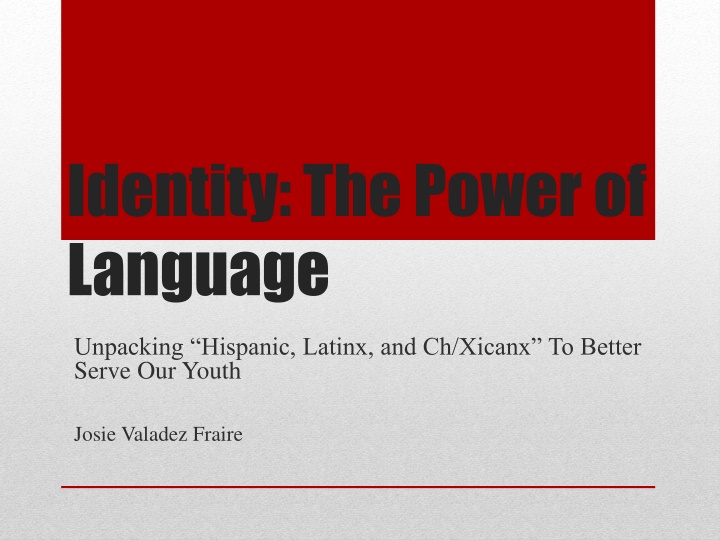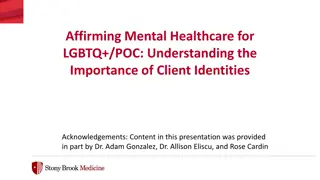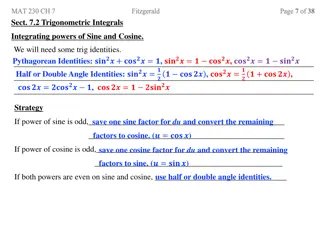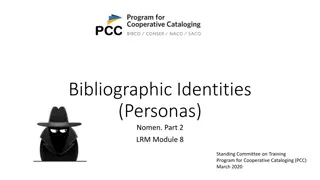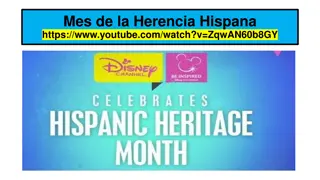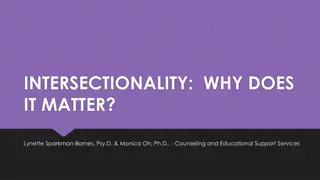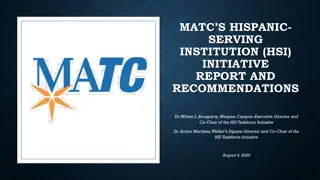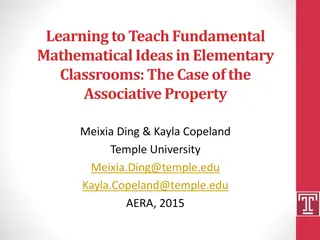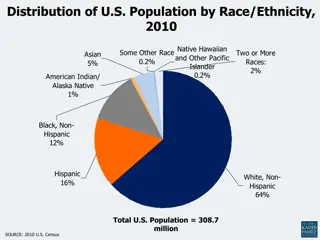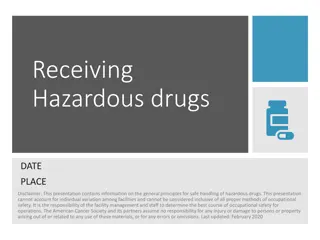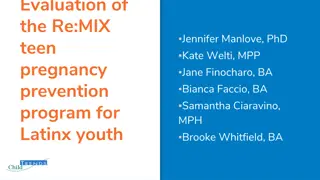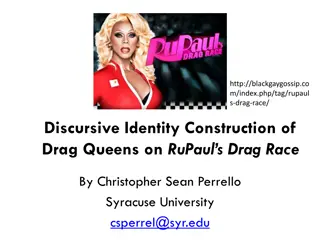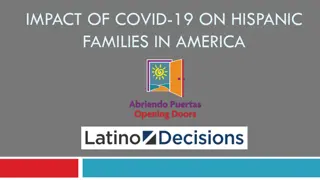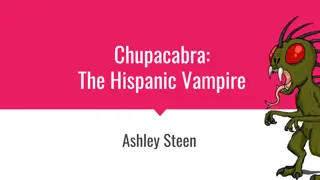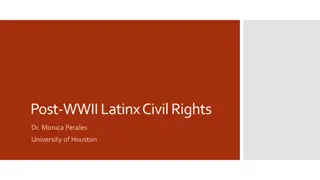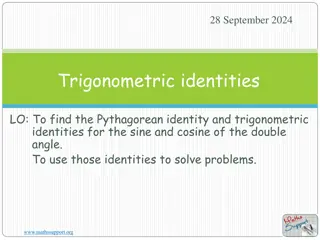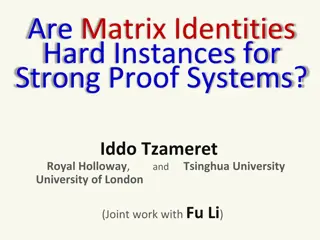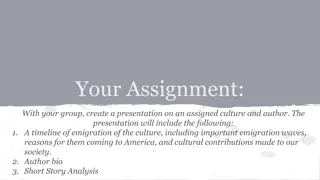Unpacking Identities: Hispanic, Latinx, and Ch/Xicanx
Delve into the complexities of Hispanic, Latinx, Chicano/a, and Xicano/a identities through the insightful exploration of language's power in serving marginalized communities like youth. Understand the impact of terms, the inclusivity offered by the "X" suffix, and the historical context behind Hispanic as an umbrella term.
Download Presentation

Please find below an Image/Link to download the presentation.
The content on the website is provided AS IS for your information and personal use only. It may not be sold, licensed, or shared on other websites without obtaining consent from the author.If you encounter any issues during the download, it is possible that the publisher has removed the file from their server.
You are allowed to download the files provided on this website for personal or commercial use, subject to the condition that they are used lawfully. All files are the property of their respective owners.
The content on the website is provided AS IS for your information and personal use only. It may not be sold, licensed, or shared on other websites without obtaining consent from the author.
E N D
Presentation Transcript
Identity: The Power of Language Unpacking Hispanic, Latinx, and Ch/Xicanx To Better Serve Our Youth Josie Valadez Fraire
Locating Myself Current Understandings Your identities The X Identities Hispanic Latinx Chicanx Xicanx Takeaways Final Thoughts Dyad Free Write/Exit Ticket Tlazocamati Roadmap
Xicana/MeXICANA/Indgena Cisgender, heterosexual muxer/womxn First-generation college student/graduate University of Colorado Boulder: Class of 2016 Bilingual (Spanish/English - linguistic privilege) Daughter of economic refugees/ immigrants Boulder/M xico/Longmont Working class Able-bodied, struggle with anxiety Passionate about equity and liberation, youth, serving marginalized and systemically underserved peoples Locating Myself
Please write what comes to mind when you hear the following terms: Hispanic Latino/a Chicano/a Xicano/a SHOW what comes to mind - Teatro Current Understandings
Please write down how YOU identify Any and all identities you choose Your Identities
The x at the end of terms like Latinx, Chicanx, Xicanx Why I use it Gender Inclusivity Languages (for ex. Spanish) inherently gendered LOS jovenes, estudiantes, etc. Lxs jovenes Resists and counters gender binary (female/womxn, male/man categorizations) Inclusive to all gender identities, including people who identify as trans*, gender non-conforming, agender, genderfluid, and genderqueer The X
Origin Invented umbrella term Used in 1970 census to categorize people of Latin origin Became standardized identity Imposed Meaning Roots origins of Brown peoples in Spain (colonizer of many peoples) Erases indigeneity Current Understandings Many identify as such Many White folks still use it, Brown folks identify with Why might this be? Hispanic
Umbrella Term (U.S.) Better term? Hispanic vs. Latinx (often used interchangeably) Many prefer Latinx Still roots origins in Latin contexts Negates indigeneity Imposes colonized identities Not just Latin America Reflects identity based on usage of colonized language Spanish, Portuguese, French, etc. Names us according to colonization Not inclusive to non-Brown presenting people Latinx
Cubano Male Very light skinned Google images Latino HBO Documentary Latinx
Origin Nahuatl? Largely popular due to Chicano Movement Mexican-Americans Not all more inclusive term Self-identification Used often Term often stigmatized within communities White-washed identity Viewed as refusing Mexican/U.S. American identities Navigating complexities of identity in the U.S. Chicanx
X used to reclaim indigeneity Nahuatl Heavily political/radical identity More inclusive Brown folks within African diaspora Afro-Latinx Any variation of Brownness Disrupts current understandings of racial/ethnic categorization Self-identification Xicanx Dignidad Rebelde
More than just about terms Identities are socially constructed Each student will identify differently ASK THEM Work to be inclusive and affirming NOT just tolerant/ respectful Curriculum (not just immigration!) Pedagogy Dismantle White Supremacy Takeaways
What feelings came up as you listened to the presentation? New learning or AHA s? Did you thinking about labels change in any way? What can you take back to your classroom or school? How can you apply this knowledge to your pedagogy to better serve your students? Final Thoughts - Dyad
Please take 2-3 minutes to write down any final thoughts or questions! Use the identity you wrote down at the beginning as an anchor for your understandings Do you think your identity is relevant to your teaching practices? Free Write/Exit Ticket
Pancha Tlazocamati/Thank You
